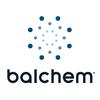Feeding and Management of Dairy Cows under Heat Stress
Heat stress refers to the sum of non-specific physiological responses of the organism at high temperature to any requirements of the thermal environment. The main factors causing heat stress are ambient temperature, relative humidity, solar radiation, and airflow. It is judged that the heat stress of dairy cows is mainly reflected by temperature and humidity index (THI). When THI > 72, heat stress occurs. Temperature? (?) Relative Humidity(100%) 30 40 50 60 70 80 90 25 (77) - - 72 73 74 75 76 30 (86) 75 77 78 80 81 83 84 35 (95) 80 83 85 87 89 91 93 40 (104) 86 89 91 94 96 - - 45 (113) 92 95 96 - - - - 50 (122) 97 - - - - - - Nutrition regulation methods 1. Respiratory frequency of dairy cows increases under heat stress. Owing to excessive ventilation, blood carbon dioxide decreases, as well as the amount of bicarbonate (HCO 3-) entering the rumen to maintain rumen health and the rumen pH value. Besides, due to heat stress, the flow of saliva increases, the flow of saliva decreases, and the content of HCO 3- in saliva decreases. Therefore, heat stress dairy cows are more sensitive to subclinical and acute rumen acidosis, and their rumen function is reduced. The dosage of baking soda can be increased to 150 g per cow per day, and the effect of 50-75 g magnesium oxide is better. 2. When the weather is hot, the intake of dairy cows usually decreases. The nutrient concentration of the diet should be increased. The rumen-passing fat with good palatability (generally not more than 300 g) can be added appropriately. The nutrient concentration of the diet includes not only traditional energy and protein but also vitamins and minerals. If vitamin E is added, VE can eliminate the free radicals produced by heat stress on the body membrane, protect the body membrane from the attack of free radicals and peroxidation damage, thereby alleviating heat stress. If used with selenium, the effect will be better. Adding nicotinamide, under heat stress conditions, nicotinic acid can cause vasodilation, accelerate blood flow to the skin surface and promote tissue heat dissipation, then alleviate heat stress. Adding vitamin C can significantly inhibit the rise of body temperature, increase feed intake and feed conversion rate, and enhance the body's resistance, thereby reducing the impact of heat stress on the body. 3. As mentioned in Article 2, the concentration of minerals also needs to be increased under heat stress. Dairy cows lose a lot of potassium in steak sweat and panting under heat stress. When potassium is in the milk, the content of mineral elements takes the first place, and cows can not store potassium. Therefore, cows should be given potassium supplements during heat stress. Some studies have shown that increasing potassium content in TMR diet to 1.3~1.6% under high temperature can increase dry matter intake and milk yield of dairy cows. High potassium content can inhibit the absorption of magnesium ions. Therefore, the effect of the supplementation of both elements is better. 4. The palatability of TMR diet was increased by using high-quality roughage. Feeding short fibers such as soybean husk, beet meal or cottonseed increased physical effective fibers without affecting the palatability and intake of TMR diets. 5. The heat consumption of roughage is higher than that of concentrate. When heat stress occurs, the ratio of concentrate to roughage can be increased appropriately. At the same time, the feeding, rumination, and feces of dairy cows can be observed to prevent acidosis.










